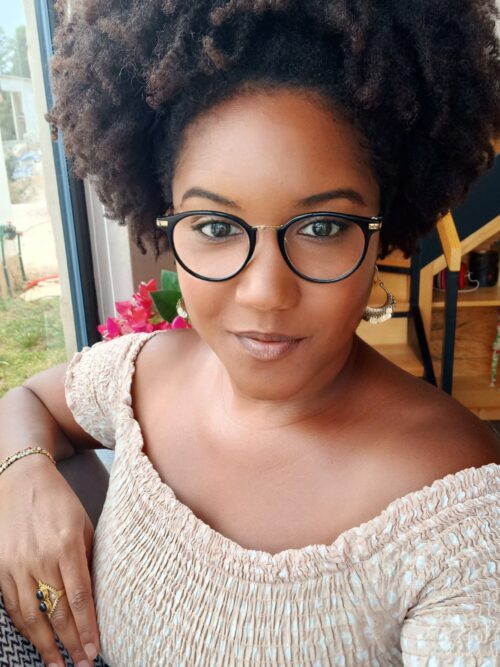It’s safe to say that re-entering the dating world in the wake of a breakup is not the easiest task. This can be especially true if your last relationship resulted in a certain amount of trauma.
Experts at Verywell Health define relationship trauma as trauma that occurs as a result of abusive behavior in a relationship. While that abuse can be emotional, physical, or sexual, it’s important to note that things you might not immediately consider to be traumatic can still have a long-lasting effect on how you show up in relationships.
For example – maybe you didn’t get to see your partner as often as you would have liked because they worked a lot – or maybe you weren’t a great match in the bedroom. While these things might not seem traumatic, they can still create lingering psychological effects. The trauma that results can either leave you bracing for more of the same behavior in your next relationships or closed off to relationships all together.
If you’ve jumped into the dating scene after a rough breakup and find yourself having a little too rough a go of it, lingering trauma could be the source of your troubles. In this article we’ll explore examples of how relationship trauma could be driving your dating choices, and what exactly you can do about it.
Why dating the ‘same’ person repeatedly is more than just a habit
Humans are creatures of habit. We get it. When we zero in on a “type” it can be hard to break free from what we’re accustomed to. Maybe you’re into the “tall, dark, and handsome” type? Okay, not so bad. However, if you find yourself repeatedly attracted to Mr. or Ms. “arrogant, emotionally unavailable, and insensitive” – there’s likely a pattern there that needs addressing.
Experts at Psychology Today explain that our tendency to date the same person time and time again actually has its roots in our childhood. It’s related to what’s called our attachment style, which is modeled after how our parents tended to us as children. This means if we had parents that were aloof or distracted growing up, we are likely to seek out those same traits in our partners. While these patterns may seem deeply ingrained, there is a way out.
Psychology Today experts say that being conscious that the pattern is connected to your attachment style is the first way to break the cycle. You can start by asking yourself a few questions:
- What types of nurturing (or healing) do I keep looking for in a partner that I didn’t get growing up?
- How can I show up for myself in the ways that my caretakers didn’t?
From there you can pivot and start to envision your ideal partner and relationship, writing down lists of qualities and ways you’d like your relationship to pan out. This way, the next time you go out on a date, you’ll be more prepared to walk away if you notice those old familiar signs.
Themes from your past relationships keep resurfacing
We’ve covered attracting the same “type,” but what about repeating the same themes? While they may seem similar, they’re actually quite different. While the former is a tendency toward attracting the same type of person, the latter more specifically addresses the patterns that continue to resurface in your relationships. For example, despite the fact that your partner type may have shifted, you may still notice yourself in similar situations. Some examples of unhealthy patterns include not clearly expressing your needs, angry outbursts, finger pointing, etc.
Experts at Psych Central explain that these patterns come from – you guessed it – childhood trauma, and can be reinforced in our romantic relationships if we don’t take the time to heal them. What’s worse is that if we don’t address our patterns, they can become more entrenched in our psyche and harder to undo because of how our brains are wired. Experts at the site explain that we actually unconsciously recreate these scenarios in an effort to heal our past wounds. However, if we’re not aware we’re doing this gaining self-mastery can be difficult.
Ways you can start healing your relationship patterns include becoming aware of the relationship patterns in our families, self-reflection, healing our primary wounds, trying out new ways of being, and being gentler to ourselves.
Staying in boring relationships may be linked to childhood trauma
If you find yourself continually staying in relationships after they’ve passed their prime (or were never up to snuff to begin with), it could be a sign that you’re suffering from some sort of trauma. Experts at Psychology Today explain that our tendency to stay in relationships that don’t support our growth could be the result of what’s called a low “comparison level.”
Comparison levels are another way of saying our “standards.” If they’re low, it means that we can actually find satisfaction in relationships that don’t provide much in terms of enjoyment or growth. These low standards can be a result of low self-esteem that was developed in childhood, and unfortunately the habit tends to repeat itself, sometimes getting worse after each relationship failure. If you find yourself feeling stuck or bored in your relationships, it may be time to reevaluate your reasons for staying and see if they’re connected to a deeper pattern.
Signs you could be in a co-dependent relationship
You’ve heard it before in many a romantic comedy: “You complete me.” It may sound innocent (and sweet) enough, but this phrase actually has some pretty unhealthy undertones. Most relationship experts will agree that healthy relationships should be a combination of two people complete in themselves, not two halves coming together to create a whole. If you continually experience moments in your relationships and dating life where you feel incomplete or unable to be with yourself, it may be a sign that you are codependent.
Audrey Hope, certified addiction and trauma counselor and spiritual expert currently working at Seasons in Malibu, California tends to agree. When discussing codependency, she explains, “An unhealthy codependent bond is when you put the other person first at all costs and are fueled by fear and your partner leaving you.”
Some of the signs you’re in a codependent bonded relationship include:
- You are in denial of the truth and reality of the relationship and its dysfunction.
- You lie to yourself in order to stay, and push problems under the rug.
- You blame yourself and wonder what is wrong with you in the relationship. This is easier than seeing bad treatment.
- You silence your own voice.
- You give your power away for love and let the other person be above you.
- You live by potential and hope for change.
- You tell yourself you will be alone if you don’t take this relationship as it is.
- You put all your eggs in one basket.
In addition to the practical tools and solutions Hope provides to her clients, she also relies on spiritual modalities to help them get to the root of their relationship problems. She believes our physical, mental, and spiritual health are inextricably linked, and that this extends into our relationships as well.
“When love crosses the boundaries of mental and spiritual health and when it becomes too much, then it is time to go. Instances of this include when we lose ourselves, wear a mask, put down the authentic self, take crumbs, and lose our power, our voice, and our dignity,” she explained.
As for how to heal codependency, she has some pretty impactful words to share.
“There is a powerful saying, ‘I achieve unison when I achieve oneness with myself. I can dance in a partnership when I can dance alone. I can love another when I love myself.’ One must marry oneself first, become whole, and see relationships as icing on an already great cake: themselves. One can never give their power away to anyone or let another person take it.”
Although addressing our trauma may seem like an overwhelming task, not doing the work could lead to more trauma that can get compounded and require even more work down the line. It’s natural that there are fallouts after relationships that may leave you feeling less than ideal but addressing your feelings can lead to a much more fulfilling and rewarding dating life. Trust us – both it, and you, are worth it.






